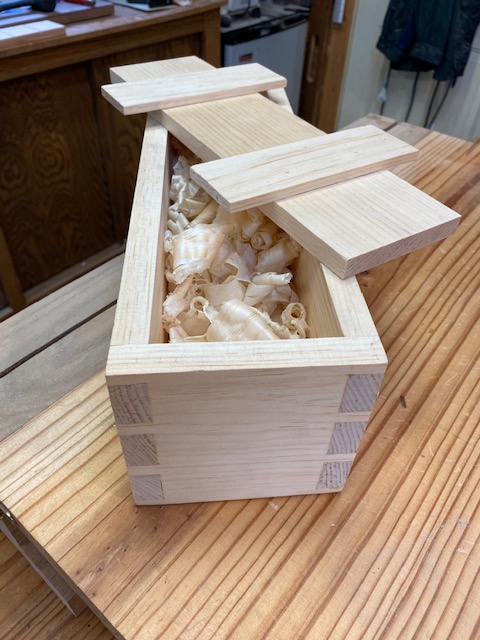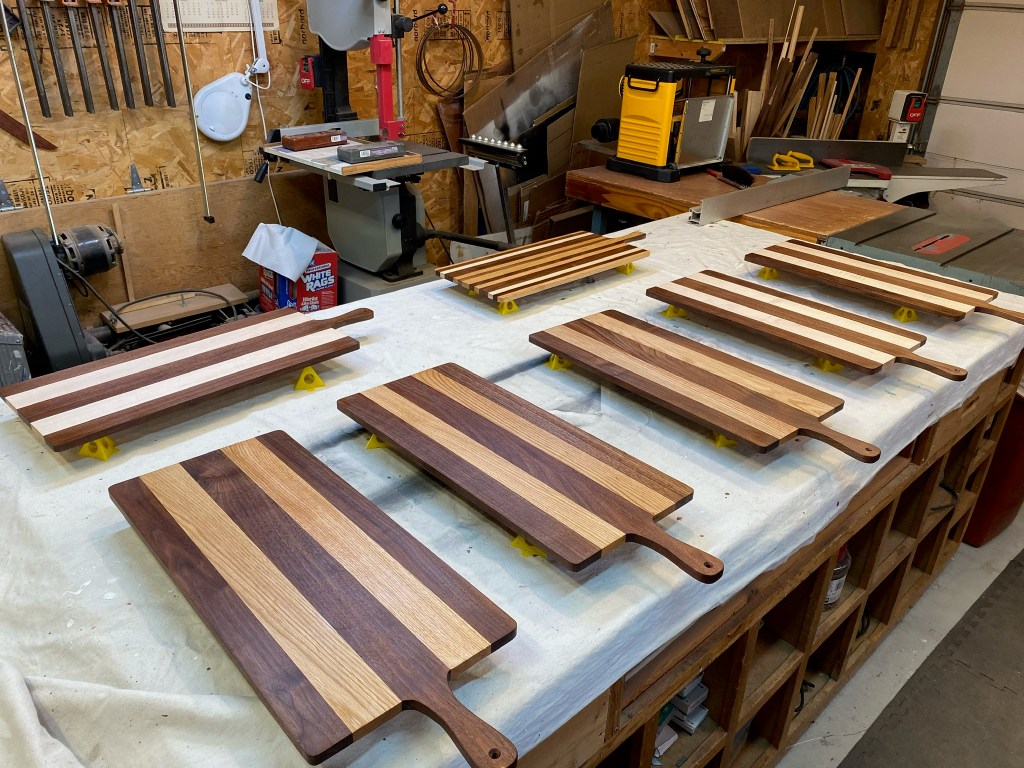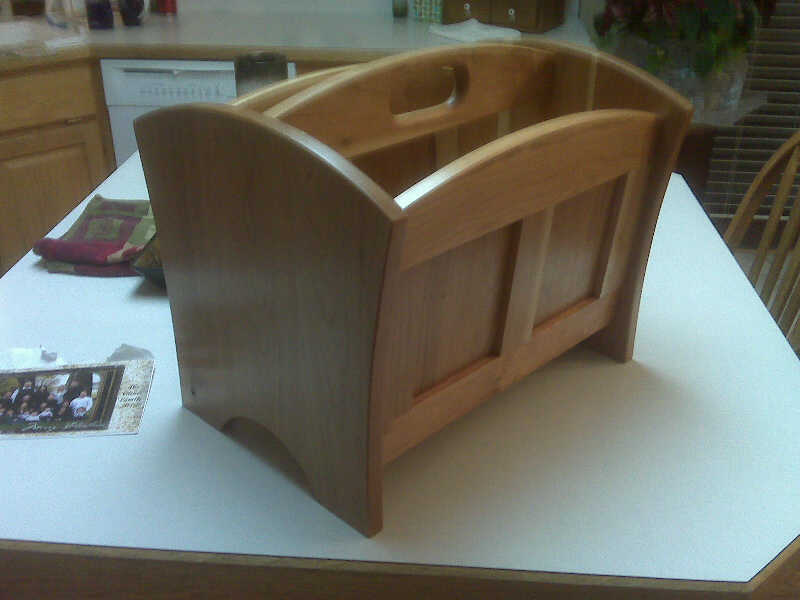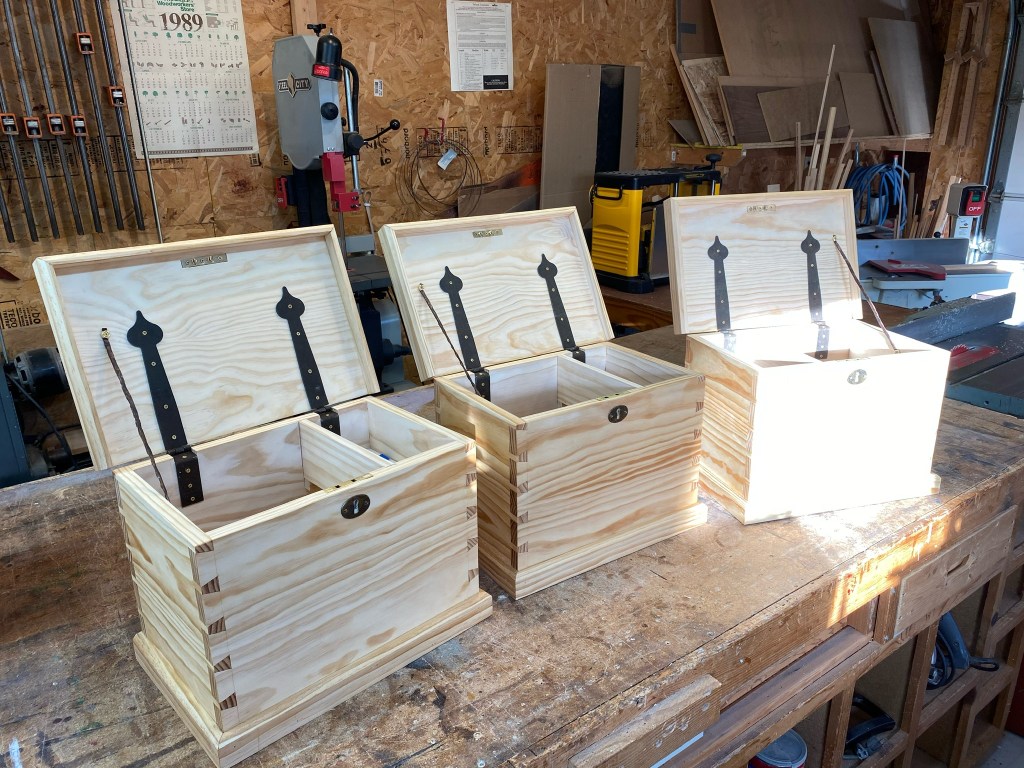I love woodworking. I have all my life. As a kid, I had my own Handy Andy tool chest (see Veritas) and built everything imaginable, including farming implements that could be attached to my old tricycle. Some of my favorite memories were related to doing woodworking of some sort with my dad – building hayracks and feed bunks, barn remodeling, etc. These pre-power tool days taught me to use a hammer and handsaw. Maybe I was predisposed to working with hand tools (again, see Veritas).
I keep saying that I should write a book on the Theology of Woodworking, but that has yet to happen. Then it occurred to me that a good start might be the writing of a related blog post(s). So, here goes…





The first thing that comes to mind is creativity. Everyone is created in God’s image as we know from the creation story (Genesis 1:26-27). Notice I said everyone – don’t miss the significance of that. Everyone means everyone – people we like and people we view as enemies. Billy Graham and Karl Marx. All humans were created in God’s image. That sets humanity apart from all the rest of creation (see Tov Meod).
What does it mean to be created in God’s image? As God’s culminating handiwork, we possess some of the same characteristics as God. God is a relational God and we are relational people. God is just and thus we hate injustice. I assume our love of music and humor comes from God. And, of course, God is a creative God, thus our creative nature. And we all possess a creative nature. Created in God’s image, we all have significant creative potential. How do I know that? Because…
I have watched children play
On the surface, creativity and woodworking seem to be at odds. Woodworking would appear to be a left-brained sport – math, science, geometry, and all that. As a structural engineer, one would think the left-brained challenges would be my favorite part of woodworking. But not so. I get a lot of satisfaction when I get to be creative.
I fully understand that some people are created with a left-brain leaning while others are blessed with a more active right brain. However, I suspect we were created with a more “balanced brain.” Then conditioning takes place, especially in western-thinking parts of the world. Not the same for eastern thinking. Westerners are focused on outcomes and feasibility. Easterners tend to be more at home with process and story. And we cannot lose sight of the fact that God’s story with humanity is rooted in eastern culture.
Conditioning can be fatal to creativity. Practical thinking* can snuff out creativity. Howard Hendricks, in his classic book Color Outside the Lines, describes what “snuffing out” looks like. He suggests readers jot down several comments about a child’s proposed wheelbarrow design…

If you are like me, your initial thoughts would primarily be negatively critical – things that would tell the child it’s ridiculous, not practical, and won’t work. Yes, conditioning can be fatal. From Hendricks…
Walt Disney, arguably among the most creative individuals America has ever produced, was drawing flowers in his elementary-school classroom. His teacher looked at his paper and remonstrated, “Walter, flowers do not have faces.” He answered, “Mine do!”
Fred Smith is the founder of FedEx. At Yale University he wrote a paper proposing a reliable overnight delivery system. His professor: “The concept is interesting and well-formed, but in order to earn a grade better than a ‘C’, the idea must be feasible.” Conditioning can be fatal!
I am extremely grateful as I think about what I get to do in my wood shop. It’s all about creativity. It helps me overcome my western conditioning. When my creative juices get going, I become a better image-bearer of God, the Creator. If I become a better image-bearer, I suspect that spills over to the world around me. “Blessed to be a blessing,” God’s covenant expectation of his people (cf Genesis 12ff).
The theology of woodworking? As a creature created in the image of the Creator, I get to use some of His creation (wood) to progressively become more creative.
* It’s not lost on me that I call this blog Practical Theology. Hmmm.

Intriguing post. We too often get disconnected from the spiritual lessons we can learn while we work.
LikeLike